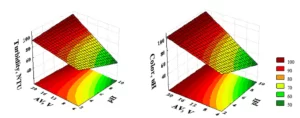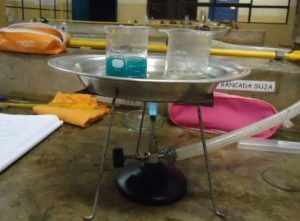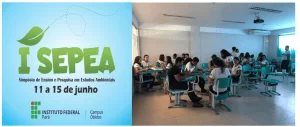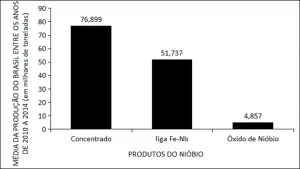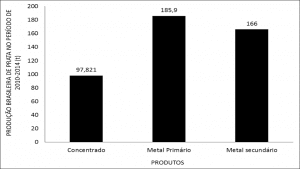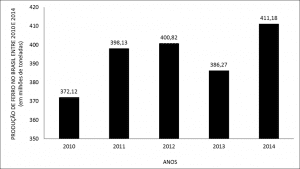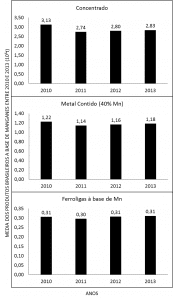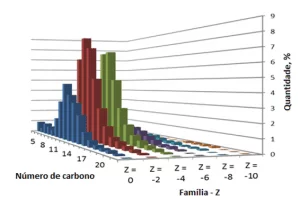BATISTELLA, Jefferson [1]
BATISTELLA, Jefferson. The computer as a tool in the teaching and learning of biology and Chemistry: concepts and perspectives of Teachers and students at a public school of Sinop-MT. Multidisciplinary Core scientific journal of knowledge. 03 year, Ed. 06, vol. 04, pp. 52-67, June 2018. ISSN:2448-0959
Summary
This article is the result of a research developed in State school teacher Aishling Mantovani ". In this research, the proposal was to know the concepts and perspectives of teachers in the area of biology and chemistry and second-and third-year students of the high school on the use of the Computer as a tool in the process of teaching and learning of Biology and chemistry. We use qualitative research assumptions, with the application of questionnaires for students and teachers of high school biology and Chemistry in the State school teacher Aishling Mantovani ". Based on the data collected, we note that teachers and students they admit the importance of using the computer as a teaching resource. Students surveyed have expressed the wish that teachers of biology and chemistry using the computer more often in their educational practices, because it is interesting and fun, practical, they believe that facilitates the learning of content by so we suggest that the training institutions to invest more in the continuing education of teachers, mainly in the area of biology and chemistry, for insertion of new technologies in their educational experiences.
Keywords: Computer, Educational Tool, educational practices, teaching and learning of biology and chemistry.
1. Introduction
The 21st century, the era of globalization, where the information is obtained through a few clicks of a mouse exploring the universe called the internet, and the knowledge passed on in various ways in various places at the same time, where the computer is the most comprehensive and agile currently exists, in order when used in a smart way becomes a real tool of transmission of knowledge and information. The Brazilian educational system had to adapt the new global trends.
Through the qualitative methodology realized that teachers find it difficult to use the computer as a pedagogical tool in their classes and students to demonstrate the use of computers by teachers of biology and Chemistry as a pedagogical tool in their classes.
The use of the computer as a tool in teaching and learning is not the solution, "bright" for the formation of a student, but it's a major breakthrough.
The school and teachers should offer its students the resources available in their media. Refuse this possibility means default and non-compliance with the primary mission of the educator; proactive citizens prepare for an increasingly competitive world and, unfortunately, with great social disparities (TAJRA, 2001 p. 10).
With theoretical TAJRA (2001), VALENTE (1997 and 1999) and Nevis (2003) that demonstrate, from reasoned arguments, the efficiency of the use of computers in the teaching-learning process, this work reveals the importance of the subject.
We realize, too, with this work, the opportunity to contribute in the process of overcoming and debunking on the use of computer in the teaching and learning process, from access to discussions and reflections on the use of computers at school .
This article in addition to the introductory section has 2 section, showing the objectives of this article. In section 3, are the materials and methods section defaulted 4 results and discussions pointed to the survey, in section 5, conclusions are made, concepts and perspectives for future work and in section 6, the theoretical basis of the survey.
2. Goal
Present what the concepts and perspectives that teachers and students have about the use of the computer as a tool to support the teaching and learning process concerning the discipline of biology and chemistry.
Perform a critical reflection on the use of computers as a pedagogical tool in the teaching and learning of biology and chemistry.
Contribute in the process of overcoming and debunking on the use of computer in the teaching and learning process, from access to discussions and reflections on the computers at school.
3. Material and methods
The research took place in the year 2010 and the methodology for development of research was qualitative, structured in different phases. The first phase consisted in exploring the literature that deals with the theme of this research is to carry out the analyses and reflections. For the completion of the field research were made observations in classrooms, thus prioritizing the conditions of qualitative research, since this happens in the natural environment of the subject researched.
Second Chizzotti (1991) the first phase consists of determining the research, is the definition of research, identifying the problems and goals.
The second phase of this research started with data collection, carried out in a context of relationships where all subjects were observed.
The third stage consisted in the action strategy, where the data were analyzed and the results of this analysis, reflections.
The qualitative research tends to be directed over the course of your development, moreover, does not seek to enumerate or measure events and generally not instrumental delivery for statistical data analysis; your focus of interest is broad and part of a different perspective of the adopted by quantitative methods. Her part to obtain descriptive data through direct contact and interactive object as the object of study situation (NEVES, 1996).
On qualitative approach there is a relationship between the subject and the object of research. "The subject is part of the process of knowledge and interpret phenomena, assigning them a meaning" (CHIZZOTTI, 1991, p. 75).
For the data collection process, semi-structured questionnaires were applied to 180 students and semi-structured interviews with the Group of 2 teachers in the area of biology and 2 teachers in the area of chemistry at Escola Estadual Professor Aishling Mantovani ", with the purpose of identifying the concepts and perspectives of teachers and students on the use of computer in class to their area.
As a strategy for the field research we opted for three steps to ensure reading of reality studied namely:
In the first step we used the mechanism of observation of lessons, regardless of discipline, because at this stage the aim was to meet the students, the reality of the school, the pedagogical experience of teachers and their relationships.
In the second step the data collection, using the questionnaires to students and teachers of biology and chemistry of high school (2nd and 3rd years) the night of the Escola Estadual Professor Ha Mantovani ".
4. Results and discussion
Policy of introduction of computers in the educational context
According to Valente (1999) the idea of using the computer in the educational context came together with your marketing in 1958 when it was first used, as an experiment in learning aid in the Watson Research Center of IBM and the University of Illinois coordinated Science Laboratory.
The introduction of computers in education of Brazil as Valente (1999) had influence of the United States which used computers primarily as a teaching machine, or rather, to educate the student about the handling and keyboarding techniques.
With the implementation of the pilot project in Universities, with experimental character, whose aim was to subsidize the future national Informatization of Education Policy, as explains Valente (1997):
In the case of computers in education decisions and the proposals were never completely centered on the MEC. Were the result of discussions and proposals made by the community of technicians and researchers. The function of the MEC was to monitor, facilitate and implement these decisions. Therefore, the first major difference of the Brazilian program in relation to other countries, such as France and the United States, is the issue of decentralization policies. In Brazil the deployment and development policies are not only product of governmental decisions, as in France, not a direct consequence of the market as in the United States.
With the rise of Computers in education project (Educom) released by the Ministry of education and culture (MEC) and the Special Secretariat of Computing in 1983. Create pilot centers in Brazilian universities.
The first experiences of computing in Brazilian Education took place in the 70. "In 1971, it discusses the use of computers in physics teaching in seminars promoted in collaboration with the University of Dartmouh/USA" (MORAES, 1997).
With the changes that were taking place during this period, Brazil begins to seek means to computerization, believin[…]g "that don't buy technology, but is created and built by people" (MORAES, 1997).
Concepts and perspectives of teachers on the use of the computer in the process of teaching and learning of biology and chemistry
There are several discussions about how to use computational resources in education. "The great thing to consider is that many researchers argue that the use of computers in the learning process can change the current educational paradigms" (MANN and SON CINTRA, 2001).
When using new technologies to mediate the process of teaching and learning of biology and chemistry, the teacher needs to be in constant study and open to changes, is out of the comfort zone.
Analyzing the response from teachers. We note that three teachers had no participation in research or training project directed to the use of computers in education. So that the teacher can use the computer is a pedagogical tool to facilitate learning multidimensional, the student should have a training without it hardly will fulfill with your role as a teacher and educator who is also facilitate the student's learning.
On this thought, Valente (1999, p. 84) comments that:
The teacher needs to be formed to assume the role of facilitator of this knowledge-building and stop being the "deliverer" of information to the learner. This means be formed both in the computational aspect of domain of the computer and the various software, as in the aspect of computer integration in the different curricular activities. The teacher should have very clear when and how to use the computer as a tool to stimulate learning. This knowledge should also be built by professor, as he uses the computer as his students and has a support team that provides the necessary knowledge for the teacher be more effective in this role. Through this support, the professor may improve their skills of facilitator and gradually cease to be the supplier of the information, the instructor, be facilitated the learning process of the student the learning agent[…].
We understand that all teachers should assume the role of facilitator in the construction of knowledge and the use of the computer as a tool in the teaching and learning process is to fulfill your role.
We believe the responses of teachers who without doubt the computer is a very important and useful tool in the process of teaching and learning especially in the discipline of biology and chemistry.
Design of high school students about the computer as a tool in health class
To know if these students had access to the computer, ask if they had a computer at home (Figure 4).
Of the 180 students search his 62 participants, namely, 34.4% had computers in their homes and 117 (65%) most did not possess and one (0.6%) did not answer this question.
We observe that the school "Teacher Aishling Montovani" has quite a number of students who don't have computers, so the school as democratizadora of teaching and encouragement of research should create means which enables students to use the computers during class, for most students, the little opportunity for handling and computer access.
Sixteen students responded that ever used the computer on other places, as shown in Figure 2.
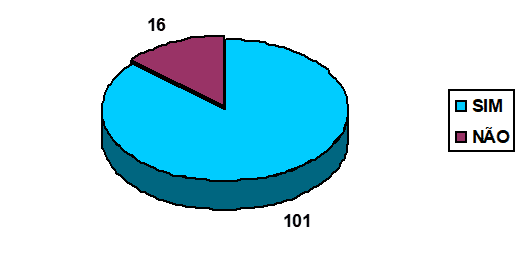
Asked about the satisfaction when the computer noticed that most demonstrated a pleasurable relationship with this technology, as we can see in Figure 3 and the statements below:
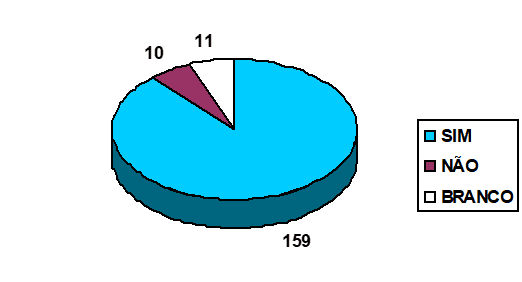
Students have a computer course, most 100 student has a course on how to use the computer, 77 has no computer-related course and 3 did not respond. Look at Figure 4.
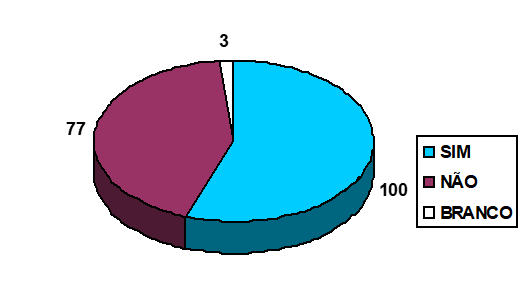
Most have basic computing course, namely, computer operator.
When asked if the student likes to study biology, 145 replied that like, 33 said they like and 2 students responded
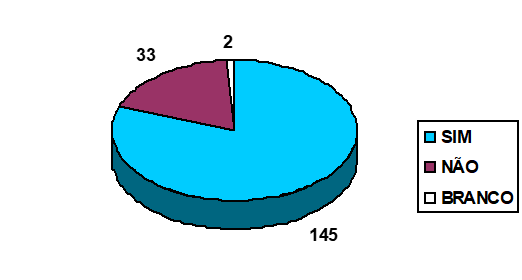
When asked if the student likes to study chemistry, 102 replied that like, 72 said to dislike and 6 students have not responded as we can see in the statements below and in Figure 6:
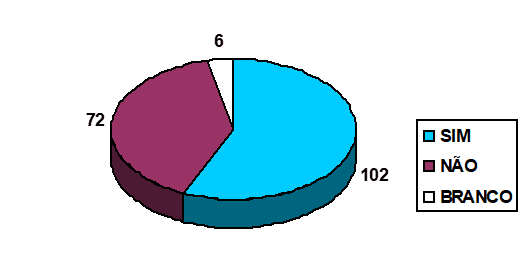
When asked if they had used the computer to facilitate the learning of contents 51 biology students responded that Yes, No 123 and 6 did not respond, as the discipline of chemistry 49 answered Yes and no and 128 white 3:00 pm. Observe the figure below:
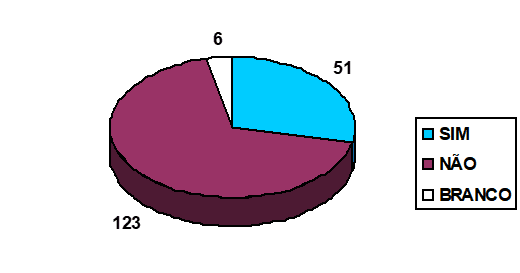
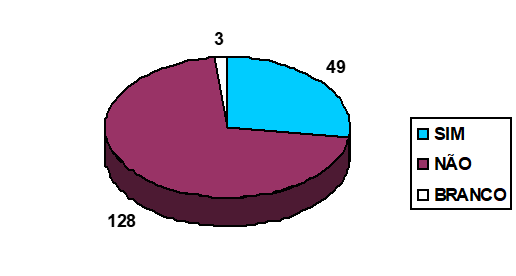
Was asked to students who answered Yes in previous question which the contents of biology and chemistry were reminded they have used the computer. We look at some of the content described:
Descriptions of the contents of the Biology computer use:
About the animals.
About viruses, fungi and various others.
Human Being
Descriptions of the Chemistry content using your computer:
Atoms.
Oil and gas Carbônicos.
Pre-salt.
For search, who invented the chemistry.
About the oil, natural gas, coal etc.
Formation, composition and use of oil.
On the use of software in biology and chemistry, 13 students who claimed to have used, 162 responded No and 5 did not respond. The programs listed are: Word, PowerPoint, Excel, most left blank the justification. We believe that the large amount of students doesn't know what a software or program, so getting from data.
When students were asked if the computer facilitates the learning of contents in the discipline of biology and chemistry, 146 were favourable opted for Yes, 24 were against opted for no and 10 left the question blank, we observe the descriptions below and Figure 9:
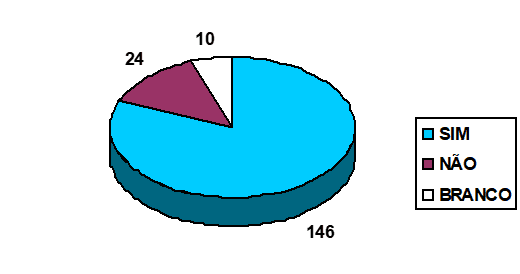
Observing the responses of students and Figure 9, we find that these (mostly) believe that the use of computers facilitates the learning of the contents taught in Biology class.
Finishing we asked students if they had the desire that teachers work more the content of biology and chemistry, using the computer, most 161 stated that would like 17 said they would not like and 2 left blank, Note the comments of students and Figure 10:
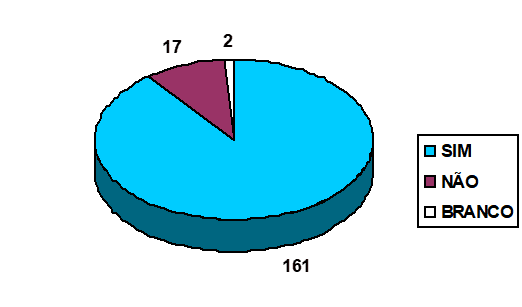
Even if many teachers of biology and chemistry if Nagarajan using computer in their classes because second Kenski (1996 p. 135) presents "most teachers do not know uses them, never learn", which reflects negatively on the use of computer in school, the wish that to happen on the part of students is intense, and we believe that teachers made to the use of this educational tool in the teaching and learning of multidimensional biology and chemistry.
Analysis from the responses of teachers and students
The use of the computer as tool in the process of teaching and learning of biology and chemistry is a fact noticed by involved in research while a possibility of improving the process of understanding of their inherent content areas. In this sense, we can ask ourselves why the teachers of biology and chemistry have not yet opted for a pedagogical practice that makes this technology a helper tool, even if available in your school computer lab?
We noticed a large percentage of students who don't have an education (courses) to computer manipulation, teachers regarding participation in research or training project directed to the use of computers in education three never participated, a claims to have participated and points out that it is important for your professional training. Observing this information can point one of the possibilities for teachers don't have a pedagogical practice that make the computer a helper tool, not feeling fit and safe for teaches biology and chemistry classes using the computer as a pedagogical tool, but what we get in response is that all teachers feel fit and safe, as the teacher who has no preparation targeted to computer use in education, or described in the questionnaire that never used the computer in their classes can feel fit and safe? As parses Sen (2001, p. 33):
Don't just take computers to the school. You need to discuss your didactic-pedagogic use and incorporates them into the teaching and learning process. It is also necessary to form properly teachers able to teach computers to avoid underutilisation of the laboratories.
We observed during the investigative process from conversations with the teachers, coordination and direction, as well as the plans and projects developed at the Escola Estadual Professor Ha Mantovani, that most of them realize in computer the ability to trigger actions to implement a technological education, so necessary in the present day.
We had clarity that most students like to learn biology and chemistry, those who don't like it, complain that they do not understand the contents of these disciplines because they are complicated. Could the teachers of Escola Estadual Professor Ha Mantovani using your computer to facilitate the learning of the contents so that they feel attracted and therefore like the disciplines mentioned above and further increase the interest and pleasure of students who already like to learn biology and chemistry.
The ProInfo proposed to introduce computers in all public schools, but this did not materialize. We understand that schools under program, need to stimulate the development of actions directed to the use of this technology. However, for this action to occur it is necessary that the teachers have access to educational software specific to their areas of expertise and time available, to suit these softwares to the content to be taught.
Training institutions for teachers, the core of educational technology and coordinator of the school computer lab, are instances which should assist these teachers to explore the possibilities of information technology to plan your classes with the support of computers and educational software, since the own students surveyed stressed that with the use of computer "would facilitate learning", and "the classes are more fun and more interesting".
The use of the computer as a pedagogical tool in learning of biology and chemistry allows y[…]ou to "optimize the process of teaching and le[…]arning; why teaching can't forget of some means who have a great importance in the process of socialization of new generations of students "(FERRES 1998 p. 132).
Teachers and students, in your most, are favorable for computer use occurs in biological and chemical education, as it contributes to learning and make the lessons more interesting, fun, is a school of excellence in audio-visual resources .
Given the diversity of thoughts and concepts perceived among the teachers and students during the execution of this work, we can infer, from some thoughts that the use of the computer as tool in the teaching process and learning is necessary, since we need to keep up with scientific and technological advances, not forgetting that our actions may boost the construction of a meaningful and contextualized education, factors to achieve the education in terms of scientific training of critical awareness.
Certainly the computer is a very useful tool in the process of teaching and learning of biology and chemistry, the teachers and students in the pass that reading during the search, in order to make such a claim.
Can we extend such inference not only to the area of knowledge of biology and chemistry, but for education as a whole and breadth to the human being; just wondering where and how to use this tool so powerful it is the computer.
Conclusion
In the survey, we found that most students do not have a computer at your domicile. Because of this, we need to rethink a efficient public policy, to mitigate the digital divide and, therefore, contribute to the implementation of social justice.
This process can be triggered as soon as the installation of computer labs in all schools and public libraries with internet access, enabling the public use during the class.
Based on the responses of teachers of biology and chemistry of the State school teacher Aishling Mantovani ", we observe that three of them already use the computer in any teaching activity only a never used the computer in their classes, they argue that have little time to prepare, because lack financial incentive by the Government, causing excessive working hours, one of the Faculty describes that lack interest also for them to use the computed Teachers in their classes.
Simply deploy the computer in the school itself, does not guarantee improvements in the conditions of teaching, we need the involvement of all protagonists in the school community realized this tool as support and, realizing the need of adjust the curriculum structures in this perspective.
We are aware that using the computer in teaching biology and chemistry learning is a challenge for teachers, involves breaking paradigms and the construction of new conceptions and perceptive in how to teach and learn.
Use the computer as a teaching tool is not an easy task, due to the lack of free software in Brazil, suited to the content of biology and chemistry taught in schools.
We observed in State school teacher Aishling Mantovani "need for information and explanation about methodologies of use of the computer as a tool in teaching and learning, covering all areas of knowledge.
Through this research we can say that the use of the computer as a tool in the process of teaching and learning of biology and chemistry is very important, since with this tool we are not only trying to form young people able to "pass" in SATs, but form intellectual beings and socially to face a job market so competitive and exclusive and that the student has to have access to technology and information, without these requirements is difficult to form a productive citizen in our society.
The desire on the part of students to the computer is also inserted into your daily life primarily in school Rascal in biology and chemistry is intense, we can believe that this feeling is not just students in Sinop in the State school " Professor Ha Montovani ", but in the State of Mato Grosso and in all Brazil and even though many teachers in the area of biology and chemistry do not want to use the computer as a pedagogical tool in the educational practices will have to fit the new context , political and social history that we are living, "the era of technology."
Bibliographical references
BRAZIL, Ministry of education and culture-PCN, National curricular parameters: third and fourth cycle of elementary school: Introduction. Fundamental education Secretariat, Brasilia, MEC, SEF, 1998.
CHIZOTTI, Anthony. Research in Humanities and social sciences. 16 ed. Cortez, São Paulo, 1991.
FERNANDO, Joan. Audiovisual media pedagogy and pedagogy with the audiovisual media. In: SANCHO, Jeanne m. (org). For educational technology. Porto alegre; New Haven, 1998 chap. 5, p 127-155.
KENSKI, Vani Moreira. Teaching and Learning resources in a society full of technology. Ilma Alencastro Steps Veiga (Ed.), Teaching. Teaching and their relationships. São Paulo: Papirus, 1996.
MANN SON, Dante Adams; CINTRA, Jorge Pimentel. Evaluation of the use of computers in the teaching and learning process; 2001. Available in: <www2.insoft.softex.br socil…/danteribeirofilho–avaliaçãoensinoeaprendizagem.htm="">.</www2.insoft.softex.br> Accessed on 15 January 2010.
MATTHEWS, Maria Cândida. Educational Informatics in Brazil: a story experienced some lessons learned. April 1997. Available in: <http: br-ie.org/pub/index.php/rbie/article/viewfile/2320/2082="">.</http:> Accessed on 29 August 2017.
NEVES, José Luiz. Qualitative research: feature, Use and Possibilities. Contract administration research, v. 1, no. 3, 2nd 1996 Seminar. Available in:<https: s3.amazonaws.com/academia.edu.documents/34607124/pesquisa_qualitativa_caracteristicas_usos_e_possibilidades.pdf?awsaccesskeyid="AKIAIWOWYYGZ2Y53UL3A&Expires=1504031573&Signature=wNtbOzaLTGVsYIoEbYDQeKhp69M%3D&response-content-disposition=inline%3B%20filename%3DPESQUISA_QUALITATIVA_CARACTERISTICAS_USO.pdf">.</https:> Accessed on 29 August 2017.
SILVEIRA, Sergio Amadeu of. Digital exclusion: misery in the information age. São Paulo: Fundação Perseu Abramo, 2001.
TAJRA, Mandar Feitosa. Computers in education: New Pedagogical Tools for the teacher. 3rd ed. View current and expanded, – São Paulo: Erica, 2001.
VALENTE, José Armed; Fernando José de Almeida. Analytic vision of computing in education in Brazil: the question of teacher training. 1997. Available in: <http: www.br-ie.org/pub/index.php/rbie/article/download/2324/2083="">.</http:> Accessed on 29 March 2017.
VALENTE, José Armando (ed.) et al. The computer in the knowledge society.
Notebooks Computers for change in education. Brasília: Ministry of education/SEED, 1999. Available in: <http: thiagomerlo.com.br/arquivos/ti/tic_educacao_livro.pdf#page="31">.</http:> Access in: 29 August 2017.
[1] Specialist in methodology of teaching of biology and chemistry

